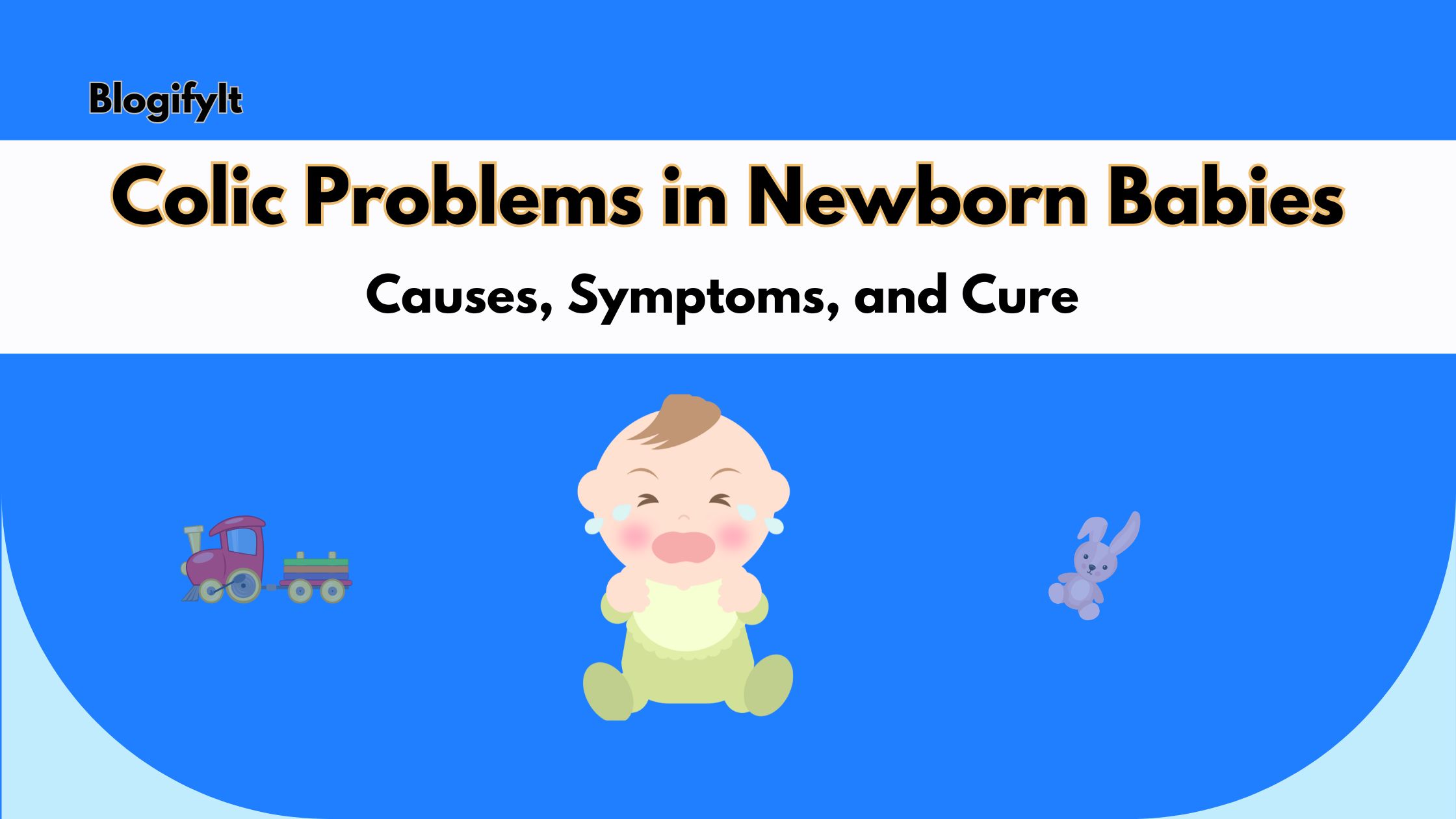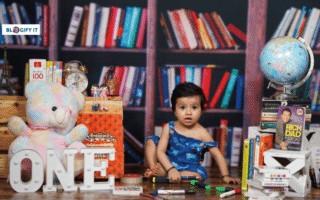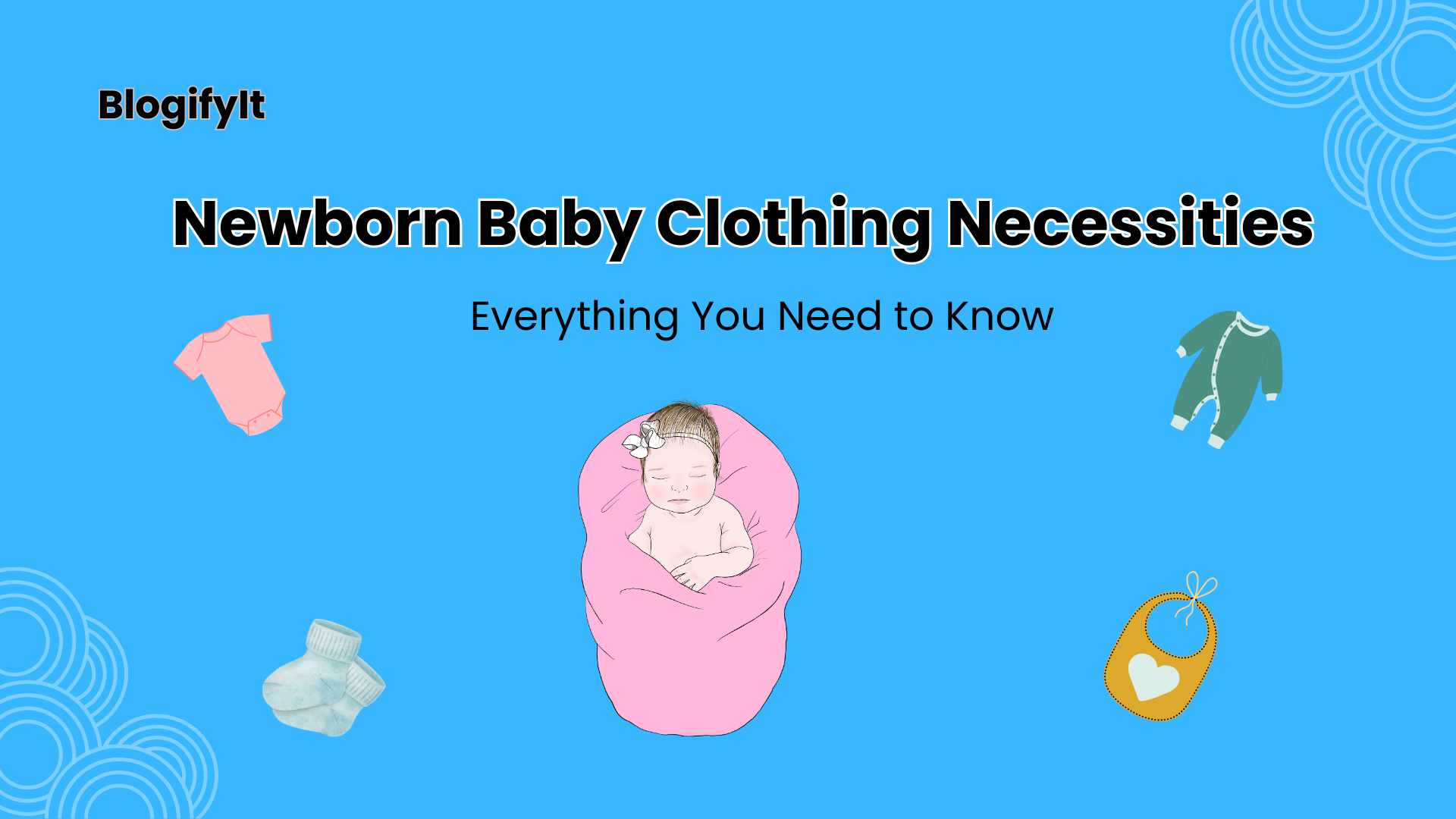Finally, you’ve welcomed your precious little one into the world! Becoming a parent is an incredible experience, but it also brings a new set of responsibilities and concerns. As a new parent, you may feel overwhelmed and unsure how to care for your tiny bundle of joy properly. However, you can confidently navigate this new phase with the proper guidance and a little preparation. In this blog post, we’ll cover the 10 most important newborn care tips every new parent should know.
From mastering the art of swaddling to establishing a soothing bedtime routine, these tips will help you provide the best possible care for your little one during those crucial first few months. So, without any further ado, let’s get started!
Essential Newborn Care Tips for Summers and Winters
Here are the essential newborn care tips for new parents:
Summer Care Tips
1. Keeping Cool
One of the most important newborn care tips is to keep them cool. Babies can’t regulate their body temperature well, so it’s crucial to keep them cool in the summer heat. Dress them in lightweight, breathable clothing and use a light blanket. Avoid direct sunlight exposure and aim to keep the room temperature between 68-72°F (20-22°C) for their comfort.
2. Hydration
Staying hydrated is vital for your little one, especially in warm weather. Watch out for signs of dehydration like a dry mouth, sunken fontanels (soft spots on the head), and fewer wet diapers. If you notice any of these, offer your child a feeding session. At times, your newborn vomit, which can further contribute to fluid loss. If your baby is vomiting frequently or has difficulty keeping food down, it’s important to monitor their hydration levels closely and seek medical advice. Remember, proper hydration keeps your baby happy and healthy.
3. Skin Protection
Your baby’s delicate skin needs extra protection from the sun’s harmful rays. When going out, apply baby-safe sunscreen and dress your baby in lightweight, long-sleeved clothing. Avoid direct sun exposure during peak hours, as the sun’s rays are strongest then.
4. Diaper Rash Prevention
Among other important newborn care tips, diaper rash prevention is equally crucial. Yes, hot and humid weather can lead to diaper rash, which can be uncomfortable for your little one. Keep the diaper area clean and dry. Also, consider using breathable diaper covers or letting your baby go diaper-free for a short time while keeping a close eye.
Winter Care Tips
5. Dressing for Warmth
In colder weather, dress your baby in layers to maintain their body temperature. A good rule of thumb is to dress them in one more layer than you’re wearing. Be careful not to overdress, as overheating increases the risk of Sudden Infant Death Syndrome (SIDS).
6. Safe Sleep Environment
Maintain a cool and well-ventilated room for your baby to sleep in. Overheating during sleep is a risk factor for SIDS, so use a room thermometer to monitor the temperature and dress your baby appropriately for sleep.
7. Skin Protection
Winter air can be drying and harsh on your baby’s delicate skin. Use a hypoallergenic, fragrance-free moisturizer to prevent dryness and keep their skin supple. When going outside, protect any exposed skin areas.
8. Illness Prevention
Cold weather increases the risk of respiratory illnesses for your little one. Practice good hygiene by washing your hands frequently and avoiding close contact with sick individuals. If your baby develops any concerning symptoms, consult your pediatrician right away.
Some General Newborn Care Tips
When my baby was born, my doctor gave me some very practical and life-saving advice on how to care for a newborn. I’ve put it all together here so you can benefit from it too. These tips cover safety, hygiene, feeding, bonding, and creating a healthy environment for your little one.
Safety & Gentle Handling
- Support That Tiny Head & Neck: Newborns can’t hold their heads up yet, so my doctor reminded me to always support the head and neck whenever I pick my baby up or lay them down.
- Never Shake Your Baby: Even playful shaking can be dangerous — it can cause brain damage or worse. Gentle rocking is fine, but no shaking.
- Safe Sleep Habits: I was told to always place my baby on their back to sleep, on a firm mattress with no pillows, toys, or loose blankets. This helps lower the risk of SIDS (sudden infant death syndrome).
- Car Seat Safety: We also learned the importance of using a properly installed rear-facing car seat every single time we traveled, no matter how short the trip.
- Temperature Check: Overheating can increase SIDS risk. Keep the room at a comfortable temperature and dress your baby in light layers.
Hygiene & Baby Health
- Hand Hygiene Matters: My doctor stressed washing hands or using sanitizer before touching the baby, especially after coming from outside.
- Umbilical Cord Care: Keeping the umbilical stump clean and dry helps it heal quickly and prevents infection.
- Frequent Diaper Changes: Changing diapers every few hours (or right away if they are soiled) keeps the baby comfortable and prevents rashes. I use fragrance-free wipes and a protective cream.
- Bathing Tips: For the first couple of weeks, sponge baths were enough until the cord stump naturally fell off.
- Medical Check-ups: Early health checks are essential — eye screenings, hearing tests, and monitoring for jaundice. My doctor told me to keep an eye on feeding patterns, weight gain, and temperature and never hesitate to call them if something seemed off.
- Stay on Top of Vaccinations: Sticking to the vaccination schedule is one of the best ways to keep your baby protected from serious illnesses.
Feeding & Bonding
- Feed When Baby Wants: I was advised to feed my baby on demand — usually every 2–3 hours. Their tiny stomachs need frequent refills.
- Burping After Feeding: My doctor suggested burping after every feed to prevent gas and discomfort.
- Skin-to-Skin Time: Holding your baby close, with skin-to-skin contact, can calm them, regulate their body temperature, and help you feel more connected.
- Talk, Sing, and Smile: Babies love hearing your voice! My doctor encouraged me to talk, sing, and make eye contact often to boost my baby’s brain development and bonding.
- Tummy Time: Once the cord falls off, short supervised tummy time sessions help strengthen your baby’s neck, shoulders, and motor skills.
Creating a Safe, Healthy Home
- No Smoke Exposure: Secondhand smoke is harmful to babies’ developing lungs. I made sure our home and car stayed smoke-free.
- Limit Visitors at First: For the first few weeks, we minimized visitors and avoided crowded places to protect our baby’s still-developing immune system.
- Pet Introduction: If you have pets, introduce them slowly and always supervise interactions.
- Noise & Light: Keep the environment calm and dim during nighttime feedings to help your baby learn the difference between day and night.You can also refer to the World Health Organization tips to get a better idea for newborn care.
My Experience of Handling Everything
While these tips were super helpful, what made the real difference was putting them into practice every single day. In the beginning, I was nervous — everything felt so fragile and new. But slowly, these “rules” became part of our routine.
How I Got Help After My Baby Came Home
One of the most important lessons I learned during those early days was that I also had to take care of myself — not just my baby. My doctor encouraged me to accept help, and I’m so glad I did.
Relatives and close friends often want to pitch in, even if they do things differently from you would. I learned to take the help I needed (like meals or a quick nap break!) and politely set boundaries for things I wasn’t comfortable with.
And yes, I was very protective about visitors — my doctor reminded me that anyone handling the baby should be up to date on vaccines and healthy. If I wasn’t ready for guests, I wouldn’t feel guilty saying “not right now.”
How I Handled My Baby
Holding a newborn felt scary at first, but I slowly got more confident. Here’s what worked for me:
- Clean Hands First: I made sure everyone washed their hands or used sanitizer before touching the baby — newborn immune systems are still developing.
- Support the Head and Neck: Whether I was cradling my baby or laying them down, I always supported their head gently.
- No Shaking, Ever: This one scared me at first — shaking a baby can be dangerous. If I needed to wake my baby, I’d tickle their tiny feet or gently stroke their cheek instead.
- Safety in Gear: I always fastened the straps on the car seat, stroller, or carrier properly and kept things calm — no rough play, jiggling, or tossing the baby in the air.
How I Bonded With My Baby

Bonding with my baby was honestly my favorite part of those first few weeks. My doctor told me that bonding helps babies feel safe and supported — and I could feel that happening every time I held her.
- Skin-to-Skin Magic: One of the first things I did at home was skin-to-skin contact. I’d sit in a comfy chair, place my baby on my chest, and wrap a blanket over us. I would hum, talk softly, or just sit quietly — it was calming for both of us.
- Gentle Touch: I loved stroking her tiny hands and feet. But yes, I am also guilty of kissing her almost 100 times a day. I mean, I used to think I should not do it so much, but honestly, I just couldn’t resist! Her little cheeks were so soft, and those kisses became my way of reassuring her (and myself) that she was safe, loved, and truly mine.
How I Soothed My Baby
Not every day was easy — there were fussy evenings and crying spells. Here are the techniques that helped us both:
- Gentle Baby Massage: I learned a few simple massage moves (my doctor gave me a booklet). It helped with gas and made her sleep better. Even YouTube helped a lot here.
- Soft Sounds: I found that talking, singing, and even playing soft lullabies calmed her almost instantly. Sometimes I’d read aloud just to let her hear my voice.
- Low-Stimulation Environment: Since some babies are sensitive to noise and light, I kept the room dim and quiet when she seemed overwhelmed.
- Swaddling: During those first weeks, swaddling was our lifesaver. Here’s how I swaddled her safely:
- Spread out a soft blanket with one corner folded down.
- Place the baby face-up with her head above the folded corner.
- Wrap one side across her body and tuck it under her back.
- Fold the bottom corner up over her feet (not too tightly).
- Wrap the other side around and tuck it gently.
I always made sure I could fit a hand between the blanket and her chest so she could breathe easily. And we stopped swaddling as soon as she started showing signs of rolling over (around 2 months).
How I Diapered My Baby
Initially, for around 2 months, I didn’t use diapers, but then I switched to using diapers full-time because it made life so much easier, especially at night. With about 10 diaper changes a day, I quickly became an expert! Here’s my simple routine:
- I kept wipes, fresh diapers, and cream nearby so I didn’t have to leave my baby unattended.
- I wiped front to back gently using fragrance-free wipes or cotton balls with water.
- I applied a thin layer of diaper cream to prevent rashes.
- I always washed my hands afterward.
When I Bathed My Baby
For the first couple of weeks, we only did sponge baths — my doctor told me to wait until the umbilical cord stump fell off and healed completely. Then, my mother-in-law used to give her a bath on her legs, and I learned that trick. So, when she left (she stayed with us for around 3 months only), I started to give her a bath.
After 6 months, I started to give her a bath in the bathtub, which was a whole new experience for both of us! At first, she was a bit unsure, but soon she started splashing, kicking, and enjoying the water. I made sure the water was lukewarm, kept everything ready beforehand, and never left her unattended, even for a second. Bath time slowly turned into a fun bonding session with lots of giggles and play.
How I Cared for the Umbilical Cord & Circumcision Area
Umbilical Cord: I kept it dry, gently cleaned with water if needed, and waited patiently for it to fall off (which took about 2 weeks). My doctor said it was normal for it to turn brown or black before falling off.
How Often I Fed My Baby
My doctor recommended feeding on demand — usually every 2–3 hours. I learned to watch for hunger cues like sucking hands, turning their head toward me, or fussiness.
Signs of Good Feeding:
- About 6 wet diapers a day
- Regular bowel movements
- Content after feeding
- Steady weight gain
I also learned to burp her during and after each feeding to prevent gas and fussiness.
What I Learned About Baby Sleep
I had no idea newborns sleep up to 16+ hours a day, but only in short stretches. It took time to adjust to the 2–4 hour sleep cycles.
Safe Sleep Tips I Followed:
- Always placed my baby on her back on a firm, flat surface.
- Kept the crib free of blankets, pillows, and toys
- Shared the room, but not the bed, for the first few months
- Changed her head position nightly to prevent flat spots
Eventually, around 3 months, she started sleeping longer stretches — and so did I! These are the exact tips I used when I first became a mom. Some came straight from my doctor, others from trial and error, but together they made those first weeks manageable. If you’re in this stage right now — take a deep breath. You and your baby will figure it out together, one day at a time.
What Are Some Danger Signs of Serious Illnesses in Newborns?
These danger signs indicate potentially serious illnesses in newborns that require immediate medical attention:
- Not feeding well: Newborns should feed every 2-3 hours. If a newborn is not feeding well, it could be a sign of an underlying illness or difficulty with breastfeeding, which can lead to dehydration, malnutrition, and failure to thrive. Sometimes it’s due to colic as well, which can cause discomfort and fussiness, making it harder for the baby to latch or feed effectively. If a baby consistently refuses to feed, is lethargic, or shows signs of weight loss or dehydration (such as fewer wet diapers or dry mouth), it’s important to consult a pediatrician to rule out any medical conditions.
- Fits or seizures: Seizures in newborns can be caused by various conditions, such as infections, brain disorders, or metabolic problems, and can be life-threatening if not treated promptly.
- No movement or reduced activity: Newborns should be active and responsive. Lack of movement or reduced activity can indicate neurological problems, infections, or other severe conditions.
- Fast breathing (more than 60 breaths per minute): Rapid breathing can be a sign of respiratory distress or infection, which can lead to oxygen deprivation and other complications if not addressed.
- Severe chest indrawing: Chest indrawing, where the chest muscles retract inward with each breath, is a sign of respiratory distress and can indicate pneumonia, asthma, or other respiratory problems.
- Feels too hot or cold to the touch: Abnormal body temperature can indicate an infection or other underlying condition. Fever (above 37.5°C/99.5°F) can be a sign of infection, while hypothermia (below 35.5°C/99.5°F) can be life-threatening in newborns.
- Yellow skin, eyes, palms, or soles: Jaundice, or yellowing of the skin and eyes, can be a sign of liver or blood disorders, such as hyperbilirubinemia, which can cause brain damage if left untreated.
If any of these danger signs are present, it is of utmost importance to seek immediate medical attention. These signs can indicate potentially life-threatening conditions that require prompt evaluation and treatment.
Final Thoughts
These were some important newborn care tips. Remember, every baby is unique, and it may take some trial and error to find the best routine for your little one. With patience, love, and these essential care tips, you’ll navigate this new chapter of parenthood like a pro. You’ve got this, new parents!




